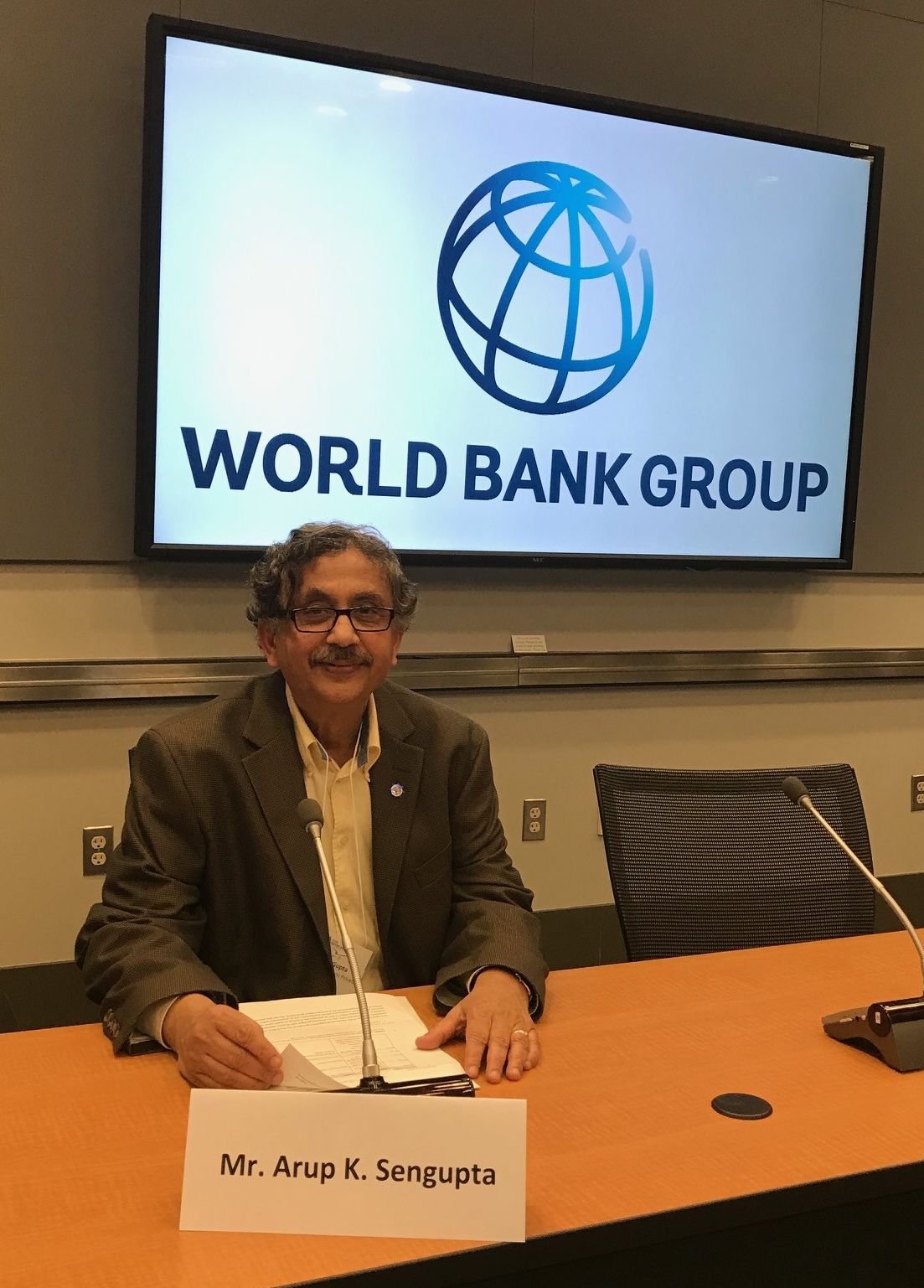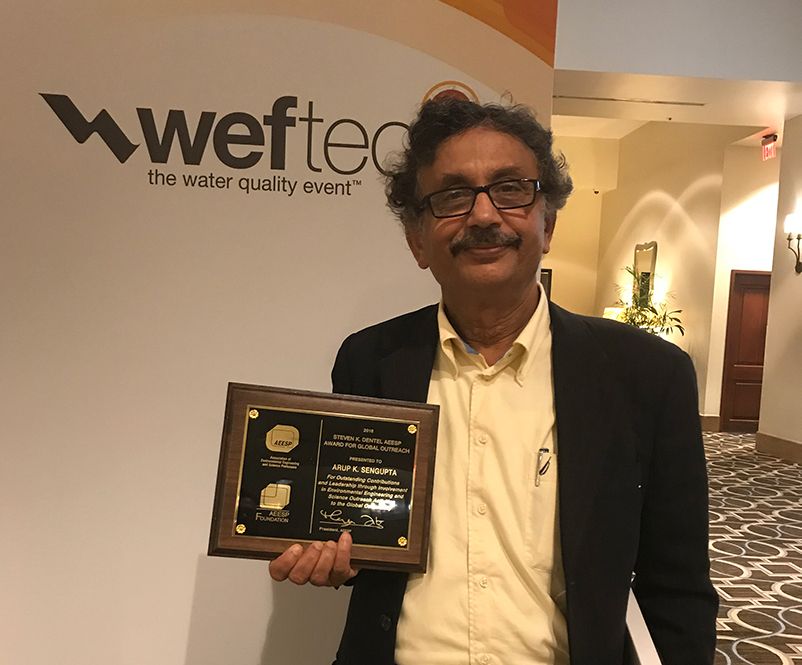Arup K. SenGupta, P.C. Rossin Professor in the Department of Civil and Environmental Engineering and the Department of Chemical Engineering, was invited to speak at 2019 Water Week, the flagship event of the World Bank Water Global Practice, held April 2 to 4 at World Bank Headquarters in Washington, D.C.
The event, which promotes global learning and dialogue on critical water challenges and responses to Sustainable Development Goals (SDGs) of the United Nations, brings together “leading innovators, thought leaders, partners, and practitioners together with World Bank staff and clients to connect the best global knowledge with implementation—and bring cutting-edge solutions,” according to the World Bank Group.
SenGupta’s lecture on groundwater quality issues, “Transforming Water of Crisis into Water of Health and Prosperity: Role of Appropriate Technology,” was part of the session on “Groundwater Pollution: Challenges and Opportunities for Action.”
“More than 50 percent of the world’s population collects their potable water from underground,” said SenGupta, “but a disproportionately large number of people in remote areas around the globe are poor. Natural contamination of groundwater—be it from arsenic, fluoride, uranium, chromate or nitrate—warrants interventions through appropriate technology to improve access to safe drinking water in agreement with the United Nations Sustainable Development Goals.”
SenGupta also participated in the panel discussion on future courses of action to mitigate the presence of various toxic contaminants, including arsenic and fluoride in groundwater. SenGupta cautioned that the gradual rise of nitrate occurring in groundwater across the world, including in the United States, should raise concern.
Research and Recognitions
For more than 35 years, SenGupta has been seeking solutions to problems relating to the lack of safe drinking water, which results in thousands of deaths globally each year.
In a paper recently published in Environmental Science & Technology, the American Chemical Society’s (ACS) flagship journal on environment, SenGupta’s work with co-authors from four different countries validated that with appropriate technology and financial models, access to safe drinking water can be sustained viably in marginalized communities in developing countries around the world.
In the past year, SenGupta’s efforts in mitigating global water crises have continued to garner recognition, including an award from the Association of Environmental Engineering and Science Professors (AEESP).
In October, at the 2018 WEFTEC (Water Environment Federation Technology) Annual Meeting in New Orleans, SenGupta was formally presented with the Steve Dentel Global Outreach Award for “outstanding contributions and leadership through involvement in environmental engineering to the global community.”
AEESP is made up of and serves professors and students in academic programs throughout the world providing education in environmental engineering and related fields. AEESP currently has more than 1000 members.
SenGupta has also been honored by the United States Chamber of Commerce and Patent and Trademark Office (USPTO) for the invention of a water filtration nanotechnology resin, called Hybrid Ion Exchange Nanotechnology (HIX-Nano), and its application in mitigating global water crises in both the developing and the developed world through international partnership.
In August 2018, two of SenGupta’s inventions (Patents #7,291,578 and #9,120,093B2) were named Patents for Humanity honorable mentions by the USPTO for their impact in addressing long-standing development challenges.
“The use of HIX-Nano has transformed the global arsenic and fluoride crisis into an economic opportunity for those suffering from it,” says SenGupta, “while providing safe drinking water to thousands of people.”
SenGupta’s research has led to the creation of three social enterprises: the Tagore-SenGupta Foundation, Technology with a Human Face, and DrinkWell.
He is also affiliated with two of Lehigh’s recently launched Interdisciplinary Research Institutes (IRIs), the Institute for Functional Materials & Devices (I-FMD) and the Institute for Cyber Physical Infrastructure and Energy (I-CPIE).
About Arup K. SenGupta
SenGupta received a bachelor’s in chemical engineering from Jadavpur University in Kolkata, India, and a master’s and doctorate in environmental engineering from the University of Houston. His research in environmental processes and sustainable materials has received recognitions from national and international organizations, including the Lawrence K. Cecil Award from the American Institute of Chemical Engineers in 2009, the Grainger Challenge Award from the National Academy of Engineering in 2007, the Intel Environmental Award for Technology Benefiting Humanity in 2012, and the VentureWell Sustainability Impact Award in 2016, among others. SenGupta currently holds ten U.S. patents and was the recipient of Lehigh University’s Libsch Research Award in 1995 and the Hilman Faculty Award in 2013. SenGupta is a fellow of the National Academy of Inventors, the American Institute of Chemical Engineers, and the American Society of Civil Engineers.


